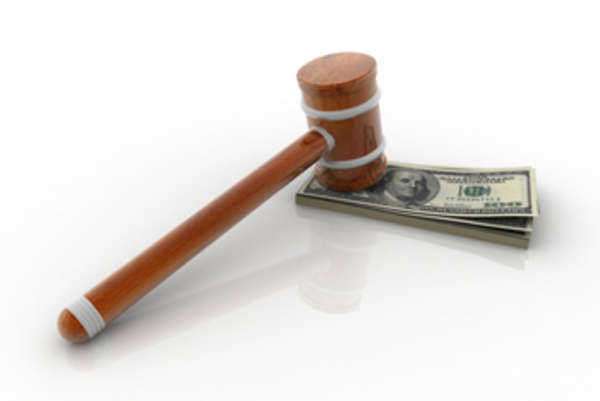
What is Fair Debt Collection?
“Fair Debt Collection” is a broad term that refers to the regulation of the U.S. debt collection industry. These regulations, which are enforced at both the local and federal level, aim at promoting an equal procedure regarding the collection of a consumer’s debts.
At the Federal level, the fair debt collection process is governed by the Fair Debt Collection Practices Act. Furthermore, a number of U.S. states implement their own debt collection laws that regulate the collection and credit industry and provide consumers protection from abusive and deceptive practices.
On the local level, a state will utilize a fair debt collection platform in one of two ways: states will implement laws that require individuals who are collecting debts to be registered, licensed or bonded to legally go after such debts in their states, or laws that protect consumers from unfair practices imposed by debt collectors or collection agencies.
Although not every state implements fair debt collection laws, the unfair practices that are disallowed will generally track those that are also outlawed under the Fair Debt Collection Practices Act. Furthermore, some states will implement a complete prohibition against collecting debts from its residents unless the coordinating collection agency can provide proof of bonding or license. This provision is not uniform, as many jurisdictions will exempt out-of-state collectors from these regulations. Common examples of prohibitions regarding unfair collection practices include the following: contacting the debtors place of work after been given a notice not do so, posing as or pretending to be a government agency, pretending to be a legal professional or falsely threatening the debtor with a lawsuit.
Several fair debt collection laws are implemented to provide a private right of action. This provision enables the consumer (individual in debt) to sue the debt collector (or collection agency) if they violate any of the aforementioned provisions.
What are the Prohibited Practices outlined in the Federal Fair Debt Collections Practices Act?
The Federal Fair Debt Collections Practices Act prohibits all debt collection agencies and individual debt collectors from using deceptive, unfair or abusive practices. These specific practices that are deemed illegal include the following:
• Harassing: The Federal Fair Debt Collection Practices Act prohibits the use of oppressive practices to collect debts. A debt collector cannot threaten to harm or inflict violence on an individual who owes monies. Additionally, the collector or agency cannot publish lists of consumers who refuse to pay their debts, make contact with the debtor’s employer, use profanity when trying to collect debts, make annoying phone calls or attempt to contact the debtor at inconvenient times (after or before 9 a.m./p.m.).
• Threats: A debt collector or collection agency cannot impose threats of arrests or violence on the debtor. The agency or collector is also barred from threatening lawsuits if they do not intend on taking legal action
• False Statements: Debt collectors, according to the Fair Debt Collection Practices Act, cannot issue false statements when undertaking the debt collection process. A debt collector cannot use misleading statements concerning you or your debts to collect the monies owed.
• Provide False Information: A debt collector may not report incorrect data to anyone, including credit agencies. Debt collectors may not file or send any documents that look like official government or court documents
• Seize: Debt collectors may not seize assets, such as property, from debtors. A debt collector may also not state that they will garnish or seize your wages or property to obtain payments
Required Conduct according to the FDCPA:
The FDCPA requires all debt collectors (and their coordinating debt collection agencies) to partake in the following actions:
• According to the FDCPA a debt collection agency must identify themselves and notify the debtor (in all forms of communication), that the communication is being made by a debt collector. In the initial communication, the collector must state that any collected information will be used to initiate the debt collection process.
• The debt collector, according to the FDCPA, must provide the debtor with the name and address of the original creditor within 30 days of original communication
• The debt, according to the FDCPA, must notify the consumer of their right to dispute the debt (in part or in full). A 30-day notice is required to be sent by the collector within five days of the initial communication with the debtor.
• The FDCPA states that a debt collector must provide a formal verification of the debt if the consumer sends a written dispute or verification request within 30 days of receiving said notice. The debt collector is required under the FDCPA to either mail the consumer the verification information or cease collection efforts altogether.
• The FDCPA states that a debt collector must file a lawsuit in a proper venue if the agency chooses to seek legal action. The venue must be located in the jurisdiction where the consumer lives or signed the original loan agreement or contract.
How does the Federal Fair Debt Collection Practice Act Define a Debt Collector?
The Federal Fair Debt Collection Practice Act defines a debt collector in the following ways (note these rules and regulations do not apply to all creditors or government entities who implement legitimate debt collection practices):
• The Fair Debt Collection Practice Act defines all recognized debt collection agencies as debt collectors.
• The Fair Debt Collection Practice Act also defines any entity who uses a false name or falsely represents themselves as collection agencies as debt collectors
• Any collection attorney is viewed as a debt collector under the provisions of the federal fair debt collection practices act
• Creditors who collect debt from other collection agencies are regarded as debt collectors under the provisions of the federal fair debt collection practices act
• Any company or person who purchases a delinquent debt from another entity is ruled a debt collector under the provisions of the federal fair debt collection practices act
• All repossession companies are classified as debt collectors
• And designers or suppliers of fake forms that definitely state that they are a debt collection are classified as debt collectors.
What are my Individual Rights under the Federal Fair Debt Collection Practices Act?
Before the Federal Fair Debt Collection Practices act was passed, debt collectors could legally hound and harass you into paying your debts. However, after Congress passed the Fair Debt Collection Practices Act, consumers are now awarded rights as protection from these unscrupulous practices. As a consumer of debt, you are provided the following rights under the Federal Debt Collection practices Act:
• Debt collectors must provide a written notice that informs you to the amount of debt owed, the name of the underlying creditor and the actions you can take to dispute the debt
• In response to a dispute filing, the collector is not allowed to contact you. That being said, the collection process can commence if you receive proof of the outstanding debts.
• If you deliver a payment to a debt collector to fulfill a previous debt obligation, the monies must be applied solely to the underlying debt. Debt collectors are not permitted to apply your payments to debts that you do not owe.
The Federal Fair Debt Collection Practices Act and the Federal Trade Commission:
Each year, the Federal Trade Commission produces a report to the United States Congress concerning its findings with regard to its FDCPA enforcement procedures. This annual report details all consumer complaints filed with the FTC concerning alleged debt collector violations of the Federal Fair Debt Collections Practices Act. For instance, the 2009 report indicated that the FTC received nearly 79,000 consumer complaints regarding third party debt collectors in the year prior. The FTC will review this document and the attached complains and use its enforcement authority (regarding revisionary powers over the FDCPA) as it sees fit.
The Fair Debt Collection Practices Act (FDCPA) was passed in 1978 and is part of the Consumer Credit Protection Act. The main purpose of the FDCPA is to ensure that consumers will be treated fairly in regards to debt collection. It will also protect individuals who are attempting to ensure the validity of the debt information against them. When consumers desire to examine their debt information and fix any errors that may be operating against them, the provisions of the Fair Debt Collection Practices Act will ensure consumer protection.
The FDCPA will not only offer consumer fair debt collection, but will monitor the practices of debt collectors by establishing rules and regulations under which they must operate. These rules and regulations will apply to any agency whose directive is to collect debt that is owed by consumers to some third party, no matter what their means of collection.
The Fair Debt Collection Practices Act does not apply to agencies who collect debt that is owed directly to them; it only covers third part debt collection. However, there is generally other State legislation that will set up provisions for agencies that collect debt that is directly owed to them. The main objective of all this legislation is to protect consumer rights.
The Fair Debt Collection Practices Act prohibits specific behavior by debt collection agencies that is considered to be abusive or deceptive. This behavior includes:
Unnecessary phone calls. The Fair Debt Collection Practices Act mandates that a debt collection agency cannot make phone calls to a consumer, except between the hours of 8:00 a.m. and 9:00 p.m.
Continued communication after a cease of communication request. If a consumer requests in writing that the debt collection agency cease all communication, the agency must respect this. The agency cannot continue communication in any other form except litigation. Further, under the Fair Debt Collection Practices Act, the creditor cannot continue to make phone calls at a person’s place of employment if this person has informed the agency that this is unacceptable.
Harassing phone calls. The collection agency cannot continue to make phone calls with the intention to annoy or interfere with the life of the consumer.
Exposing consumers by making their name and address available to other agencies and marking them as having bad credit.
Making threats of arrest or litigation when these threats are unwarranted.
Editing a consumer’s credit report with untrue information.
Becoming unnecessarily abusive with the consumer by using profanities
There is also certain behavior that is required under the rules and regulations of the Fair Debt Collection Practices Act by which a debt collection agency must abide:
Debt collection agency representatives must clearly identify themselves and their purpose for calling, regardless of the form of communication. Consumers should be fully aware that anything they say may be used in connection with the debt collection.
If a consumer makes a written request to obtain the name and address of the company to which the debt was originally owed, the debt collector must respect this.
The debt collection agency must make the consumer fully awake that he or she has the right to dispute this payment.
There must be documentation that proves that this debt is actually owed by the consumer.
If a law suit is brought against a consumer by a collection agency, the suit must be filed in the proper venue, abiding by all the rules and regulations of the court.




















